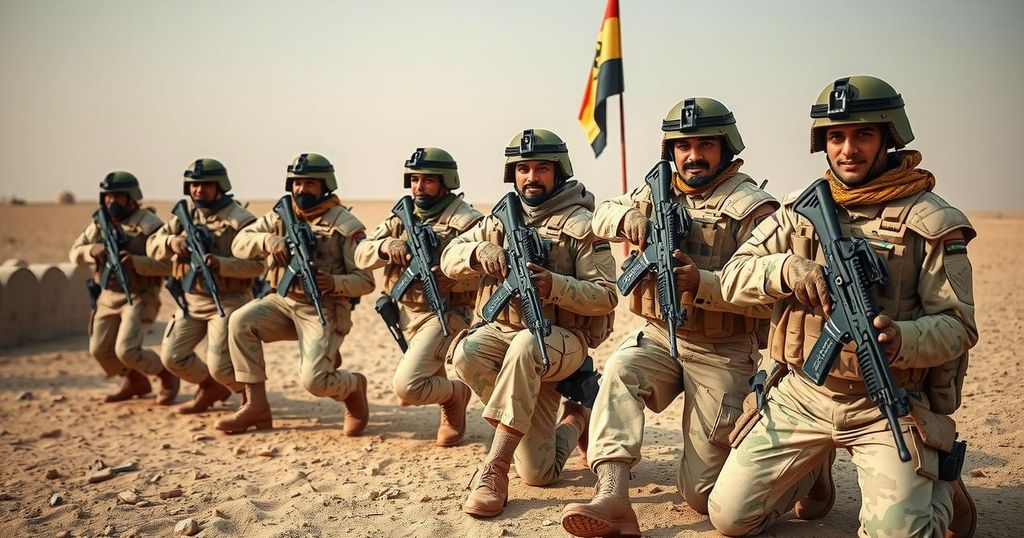Global Solidarity Grows for Palestine Amid Outrage Over Gaza Conflict

The assault by Hamas on Israel on October 7, 2023, prompted initial worldwide sympathy for Israel, but this sentiment quickly shifted to widespread outrage in response to the IDF’s actions in Gaza. Demonstrations erupted globally, focusing on the plight of the Palestinian people and calling for an end to violence. Significant public reactions included both protests against Israeli policies and attempts by pro-Israel advocates to label dissent as antisemitic, reflecting ongoing tensions in the discourse surrounding the conflict.
In the wake of Hamas’s attack on Israel on October 7, 2023, an initial wave of sympathy for Israel swiftly turned into widespread outrage due to the subsequent military actions taken by the Israel Defense Forces (IDF) in Gaza. As casualties mounted and over a million Palestinians were displaced, global protests erupted demanding an end to the violence. Notably, the proponents of these protests emphasized that their objective was to advocate for Palestinian lives rather than support Hamas. Demonstrations spread rapidly across major cities in Europe, the Middle East, and eventually the United States, indicating a significant shift in public sentiment.
By March 2024, with Gaza’s death toll reportedly reaching 30,000, protests intensified in the U.S., leading to major disruptions in cities nationwide as individuals called for an end to Israel’s military actions. Echoing this public sentiment, President Biden voiced the need for greater humanitarian efforts in Gaza during a campaign event. The intense reactions from influential American and British pro-Israel activists aimed to label protestors as antisemitic, further complicating the narrative surrounding these gatherings.
The scrutiny faced by both activists and university leaders stood in stark contrast to the overwhelming public displays of solidarity with the Palestinian people. As the conflict escalated, many significant political and academic figures in the U.S. faced pressure to suppress pro-Palestinian sentiment within their institutions, raising concerns over academic freedom and censorship. In Ireland and other European nations, recognition of Palestine as an independent state marked a shifting paradigm in international policy, reflecting a growing divergence in attitudes towards the Israeli-Palestinian conflict.
As 2024 continues, the protests have shown no signs of abating. Organizations such as the Palestine Solidarity Campaign are calling for further demonstrations to advocate for an end to perceived Israeli aggression and British complicity. The momentum gained through these protests signifies a potential transformation in public discourse surrounding Israel and Palestine that may persist into 2025 and beyond.
The escalation of violence in the Israeli-Palestinian conflict remains a deeply polarizing issue, with sentiments often shifting based on recent events. The repercussions of Hamas’s attack on Israeli territories, followed by an overwhelming military response from Israel, sparked immediate global reactions. This led to significant protests across Western nations as people expressed condemnation of the actions taken against civilians in Gaza, urging for humanitarian considerations amidst the conflict. Historical precedents of pro-Palestinian activism in academia and politics intersect with contemporary reactions to government policies and military actions in the Middle East. As various groups rallied around human rights issues, debates over antisemitism and freedom of speech emerged within Western societies, further complicating the dialogue surrounding the conflict.
The events following the Hamas attack on October 7, 2023, have manifested in global solidarity with the Palestinian cause, highlighting stark divisions in public opinion regarding the Israeli-Palestinian conflict. Demonstrations across various cities demonstrate significant discontent with governmental responses to the humanitarian crisis in Gaza. The mounting pressure on institutions and leaders showcases the complexities of addressing such a multifaceted issue, and as calls for accountability increase, a new narrative appears to be forming within the global discourse on this enduring conflict.
Original Source: www.arabnews.com








